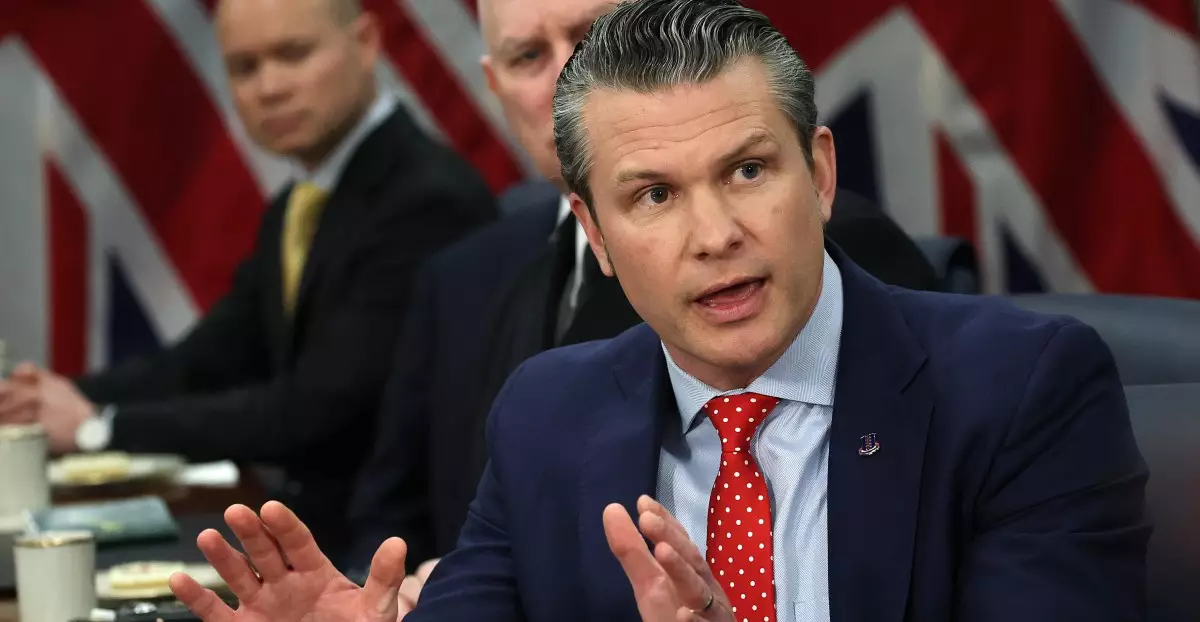In an age where technology dictates the flow of communication, the pitfalls of mismanagement can have far-reaching consequences. A recent incident involving high-ranking members of the Trump administration highlights the dangers of errant group chats—particularly when those chats involve sensitive military operations. An editor from The Atlantic inadvertently found himself included in a Signal chat titled “Houthi PC Small Group,” where plans for a military strike against Yemen were openly discussed by key officials, including the Vice President and the Secretary of Defense. This example serves as a critical reminder of the fragility of operational security in an increasingly digital world.
Chain of Important Figures, Chain of Errors
Jeffrey Goldberg’s accidental inclusion illustrates not just a failure in protocol but raises questions about the vetting processes surrounding high-stakes communications. To be in a chat with names like Vice President JD Vance and Intelligence Director Tulsi Gabbard suggests a level of confidentiality and seriousness that normally warrants strict security measures. Yet, the fact that a civilian journalist could listen in on discussions of military events underscores a profound lapse in judgment and protocol. It reveals an unsettling truth: even those at the highest levels of government can suffer from careless missteps when dealing with complex digital platforms.
The Downside of Convenience: Signal’s Security Flaw
While Signal is widely recognized for its end-to-end encryption, the incident raises critical questions about perceived security versus actual security. The entire purpose of using such apps is to ensure privacy; yet, if the app is misused, or if an unintentional user happens to be dropped into a confidential discussion, its advantages become moot. National-security lawyers have pointed out that using unapproved platforms for classified discussions is not merely a minor error; it’s an egregious oversight that potentially jeopardizes national security. If these individuals were discussing strategies in public forums, what risks might they have been unwittingly exposing?
Consequences of Digital Carelessness
Upon confirmation of a military strike that closely matched the timing discussed in the chat, the group members’ celebratory emojis felt particularly tone-deaf. Conveying congratulations through flexed biceps and American flags after actual explosions raises ethics and morality questions; it promotes a culture that appears detached from the human consequences of such actions. The chaotic nature of this incident reflects not only on individual accountability but also on collective responsibility within a government that operates heavily on digital communication. When presence in a group chat can unintentionally disclose classified information, it speaks volumes about the necessary reforms for communication protocols in the government.
Rethinking Protocols in a Digital Age
This situation presents a clear call to action for the reassessment and reinforcement of secure communication within governmental operations. In the current geopolitical climate, the stakes have never been higher; every misstep can lead to catastrophic diplomatic relations or worse. The use of secure spaces for classified conversations should be mandatory, and digital platforms should only be for approved users. Otherwise, we risk a future where technological convenience compromises national security, making it a point of consideration in both operational planning and everyday governance. As the boundaries of communication continue to blur, one must wonder: are we adequately prepared to mitigate the risks associated with it?

